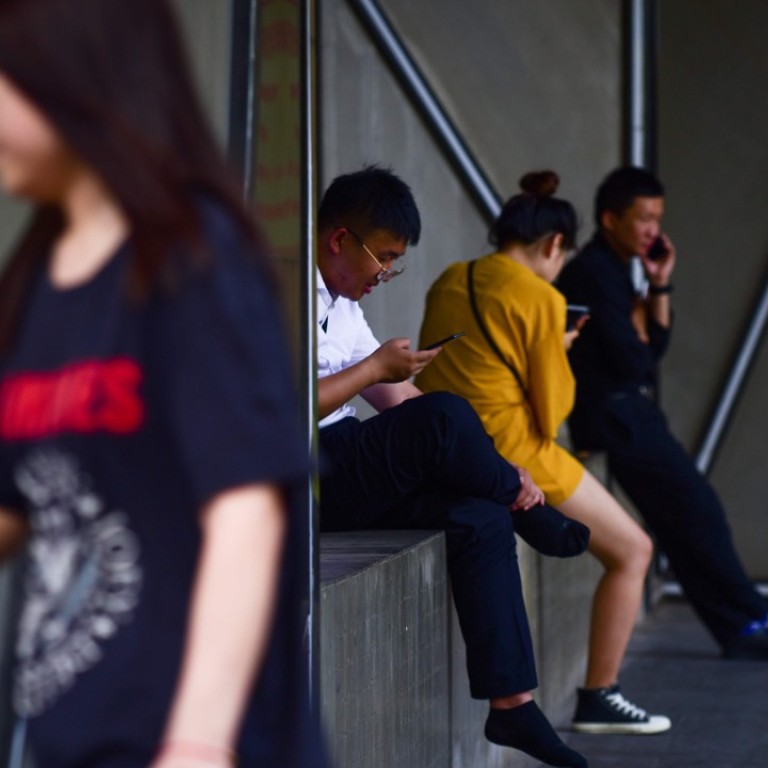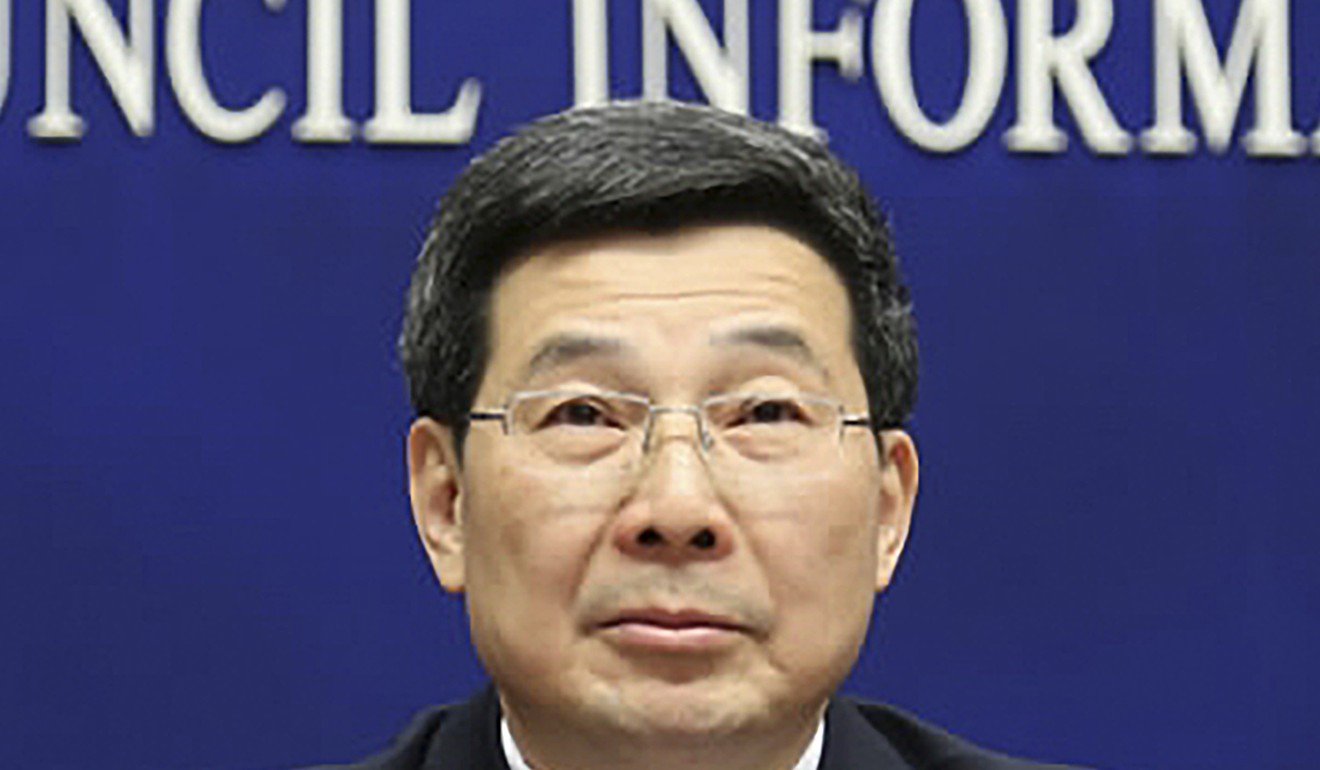
Cyberspace controls set to strengthen under China’s new internet boss
World’s largest online population urged to fight a people’s war to rehabilitate cyber ecology
The new chief of China’s powerful internet regulator has vowed to “unswervingly” strengthen Communist Party control over the world’s largest online population.
Zhuang Rongwen, who last month was appointed as director of the Cyberspace Administration of China (CAC), this week put forward an all-encompassing blueprint on how to govern the Chinese internet, which now has 800 million users – more than double the entire population of the United States.
In the latest edition of Qiushi, or Seeking Truth, the ruling party’s flagship bi-monthly journal on political theory, Zhuang stressed the party’s leadership over the governance of the internet. He pledged to uphold the president’s “core” status and to double down and improve the promotion of Xi Jinping Thought online.
The article followed the high-level conference, held every five years, to focus on propaganda and ideology work, where Xi urged officials to improve their ability to utilise and govern the internet.
‘Unify minds’: President Xi Jinping makes ideological rallying call to China’s Communist Party propaganda cadres
Under Xi’s administration, the party has already tightened its grip on the internet, silencing even the moderately critical voices that were previously tolerated as the Chinese web emerged as a relatively politically vibrant space with social media platforms including microblogs.
The party has also cracked down hard on what it perceives as “vulgar” content that runs counter to the orthodox socialist values it struggles to instil in the younger generation.
Since last year, regulators have doubled down on a sweeping crackdown on media content, punishing content makers, distributors and platform providers alike.
In the second quarter of this year alone, the CAC and its local branches shut down 1,888 websites and 720,000 accounts for hosting illegal content.

The hardline policy has continued since Zhuang took over from Xu Lin, a trusted aide to Xi who was named the party’s new international propaganda chief.
Earlier this month, a draft regulation jointly issued by the CAC and four other departments proposed a ban on all foreigners using the internet to promote and preach religion in China, prohibiting live-streaming and online broadcasts of religious activities.
In the article, Zhuang vowed to unite efforts in both promoting “positive energy” – party speak for uplifting propaganda – and suppressing “negative elements”, which Zhuang categorised as “wrong ideological trends” that range from distorting the party, the state or the military’s account of history, negating the party’s leadership or the socialist system, attacking the party’s guidelines and policies to undermining the ideology or image of party leaders, as well as rumours and terrorism-related video or audio.
Zhuang pledged to hold internet tech companies strictly responsible for content management and to speed up the establishment of an overarching nationwide platform for all key internet companies, as well as platforms for the emergency management of public opinion on the internet.
Chinese internet users surge to 802 million in test of government’s ability to manage world’s biggest online community
He also called for all internet users to join party members and propagandists to fight a “people’s war” to rehabilitate the “cyber ecology”.
“The internet has become the main battlefield and forefront of propaganda and public opinion work. To take the helm of ideology work, we not only need the driving force of party members and mainstream media editors and reporters, but also need to fully make use of the broad masses of internet users,” he wrote.
He called for more journalists from mainstream media to become “big Vs” – or influential voices – on the internet, while netizens should be mobilised to produce positive energy, influence and educate each other to regulate their own online behaviour and “cleanse the online environment”.
The article is peppered with Xi catchphrases, ranging from “creating a clean and righteous internet space” to the notion of “cyberspace sovereignty”, which sees the internet as a battlefield vital to political stability and national security.
In a speech in 2013, Xi gave a sober warning that the internet had become “the main battlefield for the war on public opinion”, as he accused “Western anti-China forces” of using the internet to defeat China.
“Whether we can hold our ground and win the fight on the battlefield of the internet directly has a direct bearing on the safety of our country’s ideology and regime,” the president was quoted as saying at the time.

